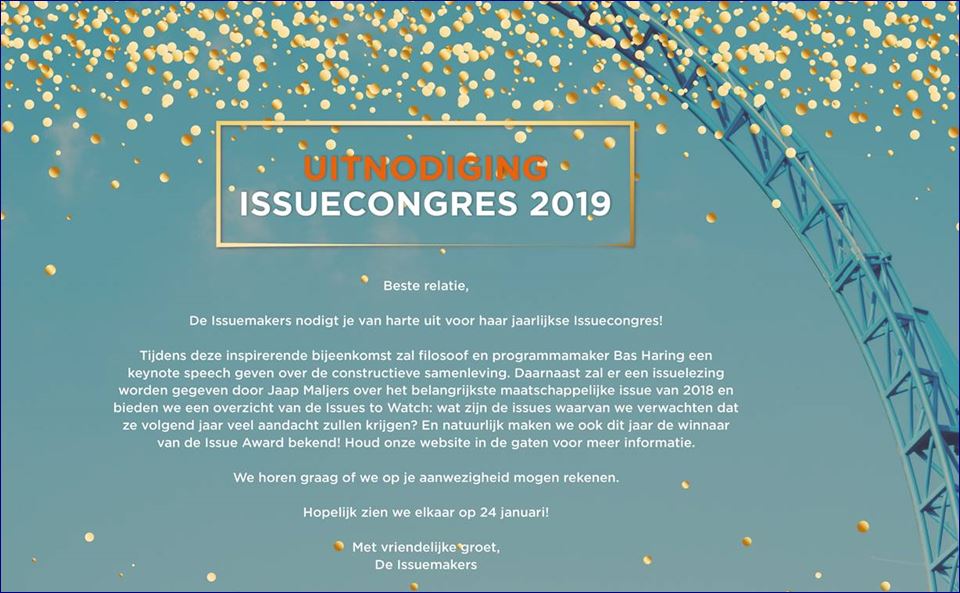Constructive journalism is not what everyone thinks, namely mainly good news and positive reporting. Constructive journalism means that as a journalist you dig deeper and look for the underlying values, interests and facts.
That was the philosopher's statement Bass Haring, speaker at the Issue conference on January 24, 2019 in Amsterdam. And this form of journalism is vital for the proper functioning of our democracy. At the same time he made a sharp judgment about the limited application of 'hear and hear both sides. That's easy, lazy journalism that, at worst, sows confusion. Because what are those opposing opinions and views actually worth? What should I do with that as a reader? Does the opinion of 1,000 climate scientists count as much as that of that one climate skeptic? No, says Haring. That is why journalism has to get to work. Be curious, dig further and uncover underlying patterns and mechanisms. Only then can the citizen, the reader, really make his or her own well-founded judgement. And they want that, even though it sometimes doesn't seem that way in these times of fast images, frames and sound bites.
Of course the press doesn't have it easy. There is often not enough time, news comes free 24/7. And click bait are measurable and that is why the catchy headline over the superficial message often wins over the more thorough, traditional story. But the tide seems to be slowly turning. This form of constructive journalism will prove its worth, not least as a revenue model. Because that is what the critical news consumer will ultimately be willing to pay for. Provided, of course, that it is presented professionally and attractively. Valuable and hopeful observations that everyone involved in media can take to heart.




